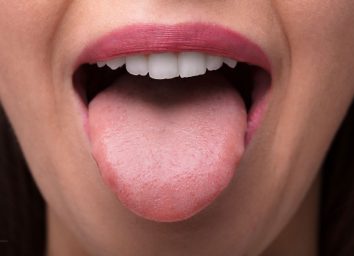I Had COVID and This Is the Diet and Exercise Advice I Followed to Recover
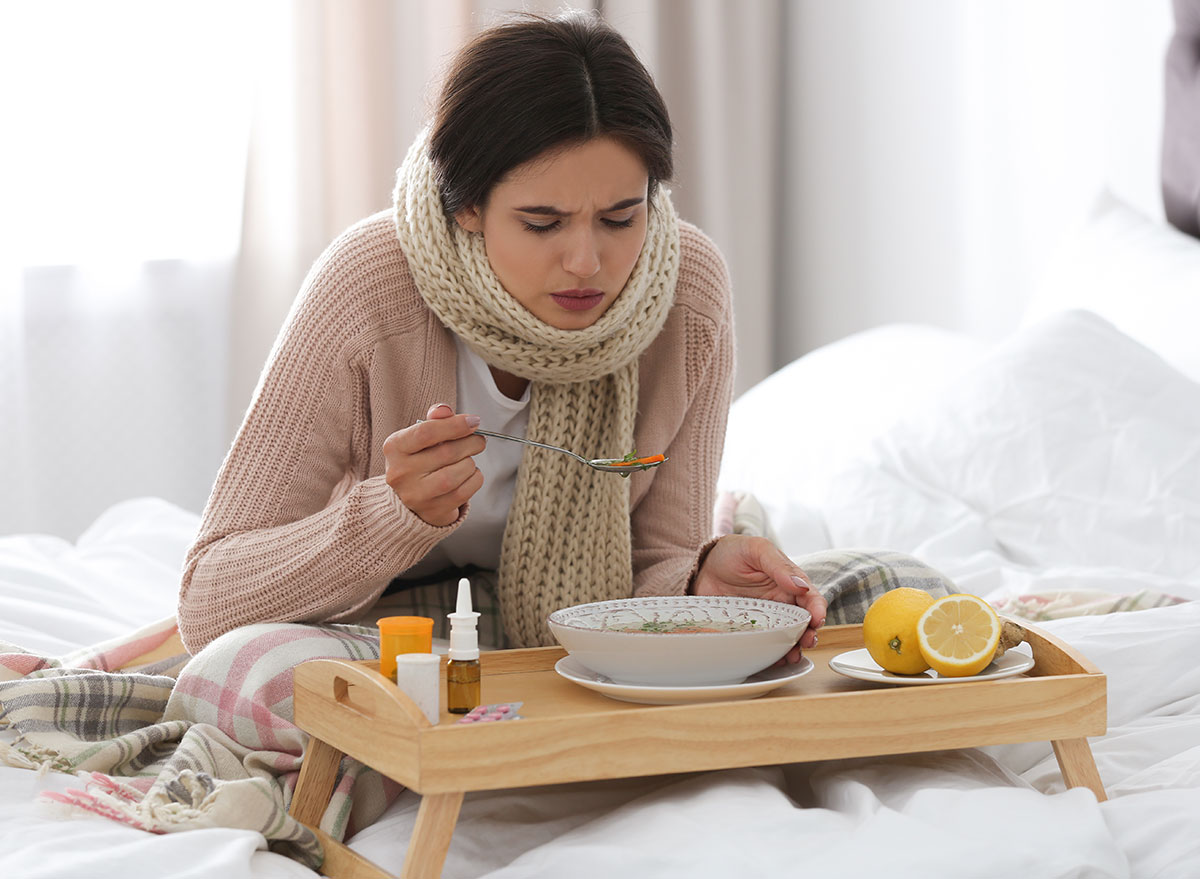
Along with just about everyone I know, I caught COVID-19 in late December 2021. My case was mild, thankfully, and I relied on a lot of soup, crackers, and sourdough bread to get me through the worst of it. But I wondered what the optimal diet would be for people with an active infection and, also, what I should focus on to ultimately recover from lingering symptoms. Plus, once I started feeling mostly back to normal, aside from a lingering cough, was it safe back to some sort of exercise routine?
I spoke to several experts including Latonya Fore, MSN, APRN-CNP, James N. Robinson, MD, sports medicine physician at the Hospital for Special Surgery, Mark Davis, MD, and Judy Barbe, RD. They advised me about nutrition and movement for people recovering from COVID, and these are their best tips. Plus, don’t miss The #1 Best Juice to Drink Every Day, Says Science.
While these are medical professionals, keep in mind that each person’s case is different. If you have symptoms or test positive for COVID, you should talk to your doctor about your specific needs.
Stay hydrated
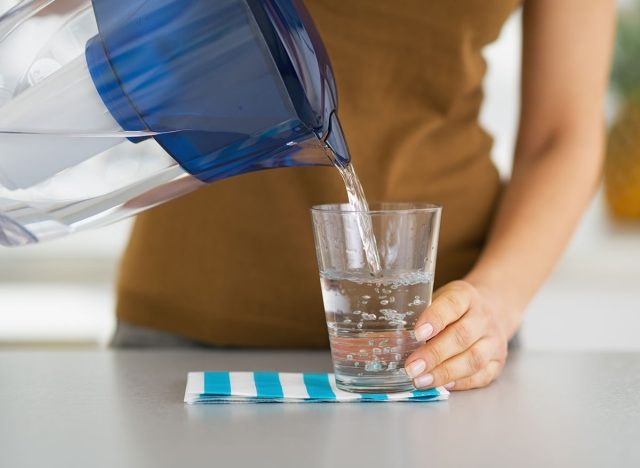
Especially with the latest micron variant, sore throat is a prominent symptom of COVID. Fore says that people who have a sore throat can boost hydration with tea and other warm liquids, which have the added benefit of soothing a sore throat.
COVID-19 may also cause vomiting and diarrhea, so it’s crucial to stay hydrated.
“When you’re really sick with COVID, you may have muscle aches, fever, congestion, nausea, and/or vomiting. In this stage, push fluids,” Barbe advises. “Keep water by the bed. Sip juice, Gatorade, broth, hot tea, or lemon honey water, or lick a frozen treat.”
Opt for soft and simple foods.

I had little appetite for much of my time with COVID, nor did I have energy to sit up and eat. Easy-to-eat foods like bread, crackers, soup, and oranges were my go-to’s.
Fore also recommends adding in bland items like roasted or baked chicken, eggs, low-fat milk, yogurt, and nut butters for food options that won’t make you feel as nauseous but will offer you nutrients.
Build up immunity with a nutrient-dense diet.
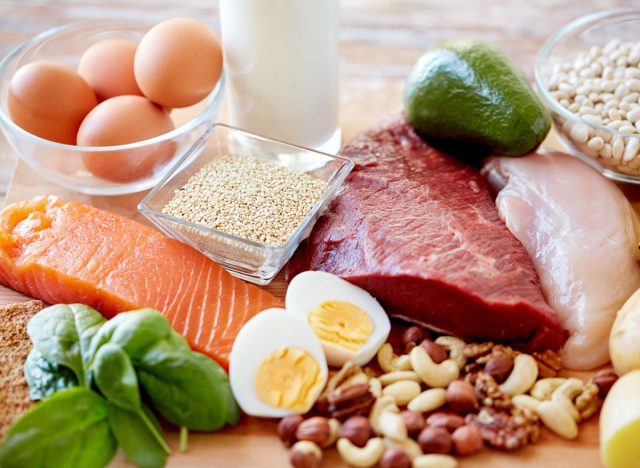
Eating a nutritious diet is important whether you’re in good health or not. But if you have COVID, eating foods that are rich in vitamins and minerals can help set you on the path to recovery quickly. Barbe notes that while bland foods, like toast and tea, will get you through those low-energy days, it’s important to eat foods with higher health dividends as soon as you are able.
“Eat throughout the day, and choose nourishing foods to ensure you get enough energy. Good protein sources (meat, fish, eggs, cheese, beans, and lentils) at each meal help you recover your strength and rebuild muscle,” Barbe says.
Fore recommends eating foods high in vitamin C, vitamin D, and zinc. Fatty fish, mushrooms, and egg yolks provide vitamin D, as do fortified options like milk, orange juice, and some cereal. As for zinc, Fore recommends oysters, crab, lean meats, yogurt, baked beans, and chickpeas.
If you’re considering supplements, Robinson recommends first talking to your doctor.
“There are some smaller studies that may show benefit for fighting viral illnesses with vitamin C, zinc, and elderberry,” Robinson said. “While larger studies are needed to see if this is a true effect, the risks are very low. However, if you have chronic medical problems, especially kidney and liver disease, you should check with your doctor prior to starting any supplement.”
Find what your tastebuds will tolerate.

One common symptom of COVID is a loss of your sense of taste and smell or changes in the way your tastebuds perceive food. Fortunately, this was a symptom I didn’t experience, but if you lose your taste and smell, it can be hard to find some foods appealing.
“Your tastebuds may be off or exaggerated,” Barbe says. “Sweet and salty may be better tolerated than bitter and sour foods.”
Boost fiber to relieve constipation.
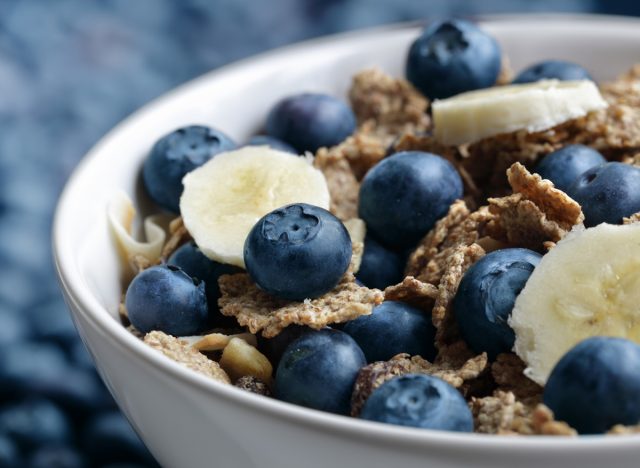
Yep, we’re going there. The reality is that many factors of COVID, from lying in bed for days to not drinking enough fluids, can make it hard to go. Getting enough fiber and staying hydrated are important for keeping things regular.
“Sleep, move to couch, repeat — COVID limits activity. That, dehydration, low-fiber foods, some medications, and emotional stress can contribute to constipation,” Barbe explains. “Fluids and fiber can help move things along. Find fiber in fruits, vegetables, beans, oatmeal, quinoa, lentils, split peas, nuts, and seeds.”
Don’t overdo exercise.
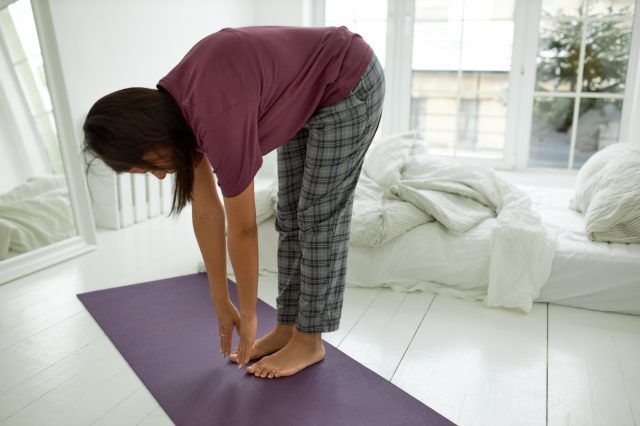
Exercise is probably the last thing on your mind during COVID. But once the fever breaks and you’ve spent a few days in bed, you’ll likely start feeling restless. And when your symptoms clear up, you might think you’re ready to resume your normal routine, but this could be hard on your body.
“Because COVID can cause shortness and breath and fatigue, exercise will be difficult. It is important to stay active throughout the day.” Fore says. “Don’t lay around, but pace your activities. Slowly resume exercise. Do some light walking to start to rebuild endurance.”
If you’re experiencing moderate symptoms such as fever, shortness of breath, or body aches, Robinson warns against strenuous exercise, which can increase your risk of developing myocarditis, or inflammation of the heart muscle. Instead, focus on slow, light movements, like walking.
During recovery, Davis recommends stationary walking in the room or area you are isolating in for about 30 to 45 minutes daily. Davis also suggests doing breathing exercises.
“Take a position in which the palms of your hands and forehead are touching the floor for as long as you can do it while taking deep breaths,” he says. “This will help you in strengthening your respiratory muscles.”
If you are hospitalized for COVID and/or experience severe symptoms, Robinson notes that even after you feel better, you need to speak to your doctor to be cleared for physical activity. And no matter how mild or severe your illness is, wait until you are feeling back to normal and symptom-free to exercise again.
“When you first start exercising, it is important to take it easy. A general rule is to start at about 50% of your normal intensity and duration and gradually increase by 10-15% per week from there,” Robinson explains. “While some fatigue is expected, if you have shortness of breath or chest pain, you should stop exercising and see a physician.”
Listen to Your Body

For me, listening to my body was important. I fortunately also have access to healthcare and can reach my care team quickly, so I knew to contact my doctor right away if I started feeling poorly. I had a brief fever, a mild sore throat, and a few days after testing positive, a cough that lingered for about three weeks after mostly recovering.
For the first few days, I really just wanted simple foods, mainly crackers and bread, although I also craved a veggie- and bean-packed soup one day and stomached some oranges, which are rich in vitamin C. After about five days, my typical voracious hunger returned.
Once I felt back to normal, pesky cough aside, I was able to start some gentle stretching, short walks, and some yoga without inversions. After several days of this routine, I started some light weightlifting sessions. I’ve yet to get back to my endurance for running or cycling, but I’ll continue listening to my body to do what feels right. For people recovering from a mild case of COVID, Fore recommends listening to your body. Of course, if you feel more severe symptoms or your symptoms begin feeling worse, you should contact a doctor immediately.
“Listen to your body,” Fore said. “If you have chest pain or worsening shortness of breath, contact your medical provider.”

